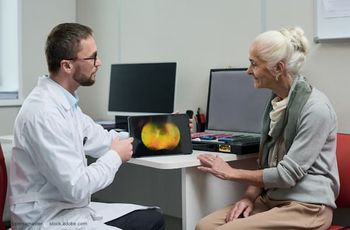
Boehringer Ingelheim launches two Phase 2 clinical trials for its geographic atrophy treatment candidates
Boehringer Ingelheim announced that the phase 2 clinical studies will investigate a potential first-in-class oral compound and a highly specific antibody fragment for geographic atrophy.
Boehringer Ingelheim announced the start of the JADE and VERDANT phase 2 clinical studies to investigate the safety and efficacy of 2 candidates: BI 1584862, a potential first-in-class oral compound for the treatment of
“Vision loss associated with geographic atrophy profoundly affects the lives of those impacted, particularly older adults, making daily activities more difficult. The loss of independence has a significant burden for patients, caregivers and society overall. I’m excited to see that Boehringer Ingelheim is exploring treatment options aimed at reducing the treatment and visit burden for patients and their caregivers,” Karl Csaky, MD, PhD, principal investigator of the phase 2 trial and CEO and chief medical officer of the Retina Foundation of the Southwest, said in a press release. “An oral treatment could alleviate the burden of existing treatment regimens and offer the opportunity to address both eyes simultaneously in patients with [bilateral] disease.”
BI 771716, also under phase 2 investigation, is a highly specific antibody fragment that targets GA pathology through optimized penetration of the retinal layers. Boehringer says its molecular properties have to potential to achieve unprecedented efficacy.1
Currently, only 2 therapeutics are FDA approved to slow the progression of GA: pegcetacoplan (Syfovre; Apellis Pharmaceuticals) and avacincaptad pegol (Izervay; Astellas Pharma). A photobiomodulation device (Valeda; LumiThera) is FDA-approved to improve visual outcomes in patients with dry AMD. Boehringer Ingelheim’s hopeful therapeutics would widen the treatment landscape further, giving eye care providers the chance to choose the treatment that is best for the patient and their lifestyle.
“At Boehringer Ingelheim, we recognize the need for treatments that address the diverse needs of GA patients and of the medical community. Our commitment is reflected in our Phase II clinical trials investigating two distinct compounds, BI 1584862 and BI 771716, each targeting different pathways. This approach highlights our dedication to providing tailored solutions that support the individual needs of people living with the condition,” Patrick Bussfeld, MD, PhD, global head of medicine, eye health, at Boehringer Ingelheim, said in a press release. “By exploring multiple avenues, we are seeking to offer more individualized treatment options and, ultimately, improve the quality of life for people living with geographic atrophy."
In April 2023, Boehringer announced it was partnering with RetinAI to leverage its artificial intelligence (AI) properties in pursuit of pipeline advancement. The plan was to use RetinAI’s Discovery platform and range of AI tools to scour imaging to detect novel biomarkers and markers of disease progression as Boehringer continued research on its GA candidates.4
At ARVO 2025, Boehringer presented 19 abstracts across its eye health portfolio, which aims to address unmet need for retinal conditions.
References
1. Boehringer Ingelheim starts Phase II study of its potential first-in-class oral compound as a treatment for geographic atrophy. Boehringer Ingelheim. Press release. Published May 6, 2025. Accessed May 7, 2025. https://www.boehringer-ingelheim.com/science-innovation/human-health-innovation/phase-ii-start-oral-treatment-geographic-atrophy
2. A study to test different doses of BI 1584862 in people with a distinct form of age-related macular degeneration (AMD) called geographic atrophy. ClinicalTrials.Gov. Accessed May 7, 2025. https://clinicaltrials.gov/study/NCT06769048?cond=BI%201584862&rank=5
3. A study to test whether BI 771716 helps people with an advanced form of age-related macular degeneration (AMD) called geographic atrophy (VERDANT). ClinicalTrials.Gov. Accessed May 7, 2025. https://clinicaltrials.gov/study/NCT06722157?cond=BI%20771716&rank=1
4. Hutton D. RetinAI, Boehringer Ingelheim team up with shared vision to use AI to develop treatments for patients with geographic atrophy. Ophthalmology Times. April 21, 2023. Accessed May 7, 2025. https://www.ophthalmologytimes.com/view/retinai-boehringer-ingelheim-team-up-with-shared-vision-to-use-ai-to-develop-treatments-for-patients-with-geographic-atrophy
Newsletter
Keep your retina practice on the forefront—subscribe for expert analysis and emerging trends in retinal disease management.

































